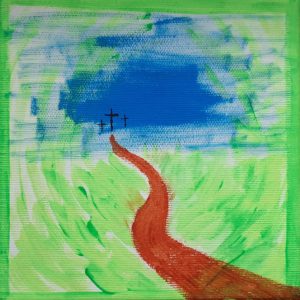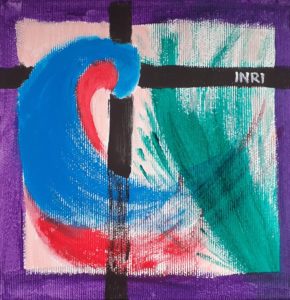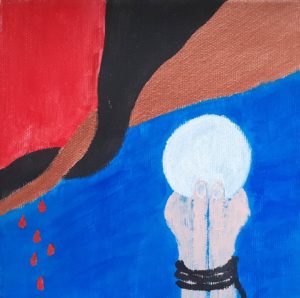 Silence
Silence
In the face of death, words are always unnecessary. You can only be silent and persevere, you can trust and love. However, we are afraid of silence, because it brings out what we might not expect. We drown it out even in prayer – we constantly have to say something, sing, ask and sometimes get angry with God. And silence is an opportunity to listen.
We carry this deep silence within us, just like the ocean, which, turbulent and tossing waves on the surface, is an oasis of calm at the bottom. If we only find the strength to go deeper, we will discover something very important about ourselves, about God, about the world. More than flashy articles and loud comments.
Expectancy
The hardest thing about Holy Saturday is that nothing is happening. It is often easier to suffer than to wait, easier to give up than to hold on to hope, easier to escape than to persist. This time invites us to be patient and trust that what may seem like the end is not the end at all.
Once my spiritual director told me that our faith is strengthened in “the time between the trapezes”. This is the moment when the acrobat performing stunts in the air has already released one trapeze, but has not yet managed to catch the next one. I’ve never done such acrobatics, but I imagine that these few seconds can last forever and be accompanied by a lot of anxiety. This is the experience of Holy Saturday – after all, you know that this story has a continuation, but are you sure?… This is where my trust is tested, not in times when I already know and understand everything.
How difficult it is to wait for the fulfillment of a promise is seen in the example of Abraham. Before the words he heard from God were fulfilled, he tried many times to push his own plan through, making a lot of mistakes along the way. I remind myself of this whenever I have the feeling that time is passing and nothing is happening, and I am starting to lose hope. God really knows what He’s doing and He’s not delaying (cf. 2 Peter 3:9).
Emptiness
There is no liturgy on Holy Saturday. Don’t be fooled by the inscriptions on posters in parishes, because there is no such thing as “Holy Saturday Liturgy”! The Easter Vigil is already a celebration of Resurrection Sunday, which, according to Jewish tradition, begins after dark. The only liturgy of Saturday is the Liturgy of the Hours, which is especially beautiful these days. The ancient homily for Holy Saturday delighted me from the first reading. Jesus, bringing everyone out of the Abyss from Adam and Eve themselves, shows in practice what the victory of life over death means. These are the specific people in the history of the world that we will meet someday in Eternity.
Besides, there is emptiness in the Liturgy. This is the time to stay in Adoration, but above all, to deeply experience the emptiness we have inside. The one that we clog with the multitude of tasks, the number of words, the noise of everyday life. It is not comfortable, it causes pain, but without it we will not take full advantage of the grace that God has for us, because for this we need an empty vessel.
“Awake, O sleeper, and arise from the dead, and Christ will give you light” (Eph 5:14).
 The Lamb will shepherd them
The Lamb will shepherd them The Eucharist in action
The Eucharist in action
Recent Comments